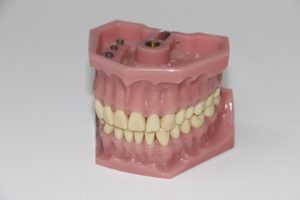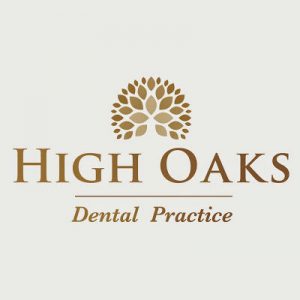Dentures are a way to restore a senior’s self-confidence and allows them to eat food
normally again. For seniors and loved ones caring for seniors, proper cleaning and
care of dentures is an important part of a senior’s daily routine. With good oral
hygiene practices, storage, and regular check-ups with your dentist, you can ensure
your dentures and healthy smile last you many years.
Introduction to Dentures
Missing teeth can lead to a variety of health conditions, including accelerated tooth
decay of neighbouring teeth, and bone loss in the jaw. For seniors, missing teeth can
also interfere with speech, eating, and nearby teeth can shift out of alignment. In
some cases, all of the teeth need to be extracted and replaced.
Complete dentures replace the entire upper or bottom arches of teeth, while partial
dentures replace one or a few missing teeth.
Dentures are acrylic, metal, or nylon replacements for missing teeth. Partial dentures
clip to your natural teeth, while full dentures fit over your gums to stay in place.
When Are Dentures Necessary?
Full and partial dentures may not be the ideal solution for everyone. For those with
one or more missing teeth, dental bridges may be a viable option. However, fixed
dental bridges are permanently cemented in place, so you must maintain impeccable
dental hygiene to make them last. This is one of several reasons to consider
removable full or partial dentures. At St Albans Dental Practice, we design a custom-
fit solution to restore your smile.
Denture Care Tips
Proper care for dentures and your personal oral hygiene is vital. This keeps your
dentures functional, visibly appealing, and free from stains. If taken care of properly,
dentures can last for many years. Here are some useful tips to keep your dentures in
great condition:
● Maintain Good Oral Hygiene
It is important to take good care of your natural teeth as well as your dentures. When
you remove your dentures, clean your tongue, cheeks, remaining teeth and gums
with a soft-bristled brush. This can keep your mouth healthy and guard against
odour.
● How to Clean Your Dentures
Each time you eat, it is a good idea to remove your dentures and rinse them with
water. Remember to be extremely careful when handling your dentures. According to
the Mayo Clinic, you may use a towel or some water in the sink to ensure the
dentures won’t break if they are accidentally dropped during cleaning. Gently clean
your dentures with a soft-bristled toothbrush at least once daily to remove food
particles and debris. Soak dentures overnight in water and a denture-soaking
solution. This keeps them bacteria-free and prevents them from drying out,
maintaining their shape.
● Eating with Dentures
The ability to enjoy a greater variety of foods is one of the greatest benefits of getting
dentures. However, learning to eat with them usually takes time and practice. If your
dentures are new, it is common to feel discomfort while eating. Many patients find it
easier to keep a softer diet such as mashed potatoes, gelatin, pudding, yoghurt and
smoothies during the first few weeks. As your diet becomes more solid, it helps to
cut your food into smaller pieces. Over time and with practice, you will be able to
enjoy your favourite foods again.
● How to Remove Dentures
Denture removal should be done with great care, using a gentle rocking motion. This
process will also take a bit of time to perfect. Never use anything other than your
fingers to remove your dentures. Place your finger between the upper denture and
your cheek and press down gently where the denture meets the gums. Always try to
use even pressure to loosen your denture.
When to Visit Your Dentist
Book regular appointments with your dentist to have your dentures examined and
cleaned professionally. Your dentures should feel secure. Schedule an appointment
if they feel loose or click when you speak. Often discomfort is also a sign that
something is wrong. Natural changes to your bone structure will eventually make it
necessary to make adjustments. If your dentures are visibly worn, it may be time to
get them replaced.
Author Bio:
High Oaks Dental Practice is a Private and NHS Dentist in St Albans. Using
the latest technologies, High Oaks Dental provides wide range of dental treatments
with all the comfort and caring manner. To achieve a confident smile, visit our
website or call us on 01727 893 430.


